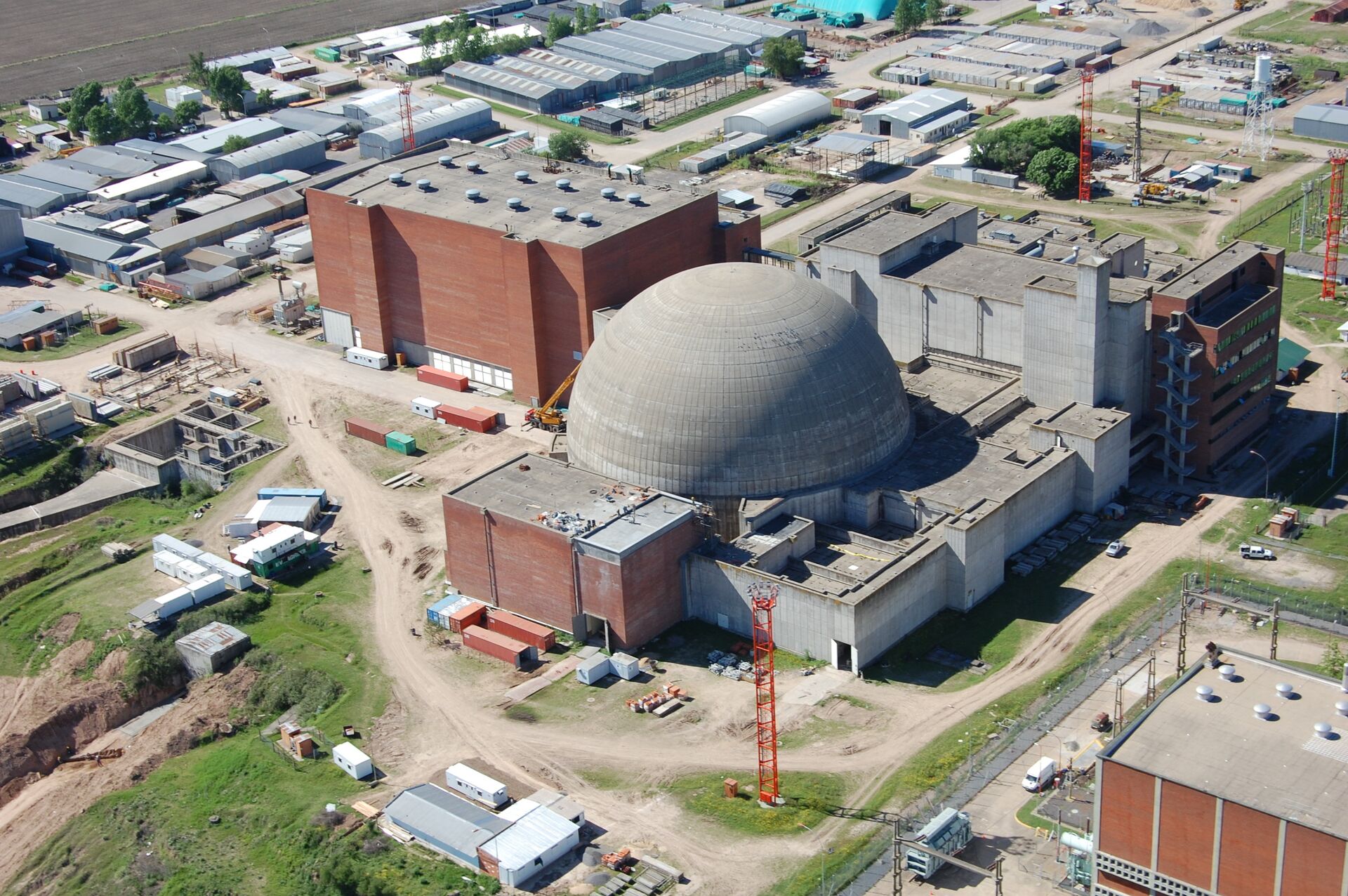https://sputnikglobe.com/20230302/some-20-million-people-left-without-electricity-in-argentina-after-fire-sparks-on-power-lines-1107919400.html
Some 20 Million People Left Without Electricity in Argentina After Fire Sparks on Power Lines
Some 20 Million People Left Without Electricity in Argentina After Fire Sparks on Power Lines
Sputnik International
Some 20 million people — about 40% of consumers across the country — were left without electricity in several provinces of Argentina due to a fire on power supply lines, it was reported on Wednesday.
2023-03-02T00:03+0000
2023-03-02T00:03+0000
2023-07-31T16:57+0000
americas
argentina
power outage
fire
nuclear power plant
https://cdn1.img.sputnikglobe.com/img/106548/48/1065484833_0:52:1000:615_1920x0_80_0_0_9cb22c2da941ed395f66079b34fd8da1.jpg
Local media reports have indicated outages were reported across large parts of the metropolitan region and in several provinces, such as Cordoba, San Juan, San Luis, Santa Fe and in Mendoza. Additionally, operations were temporarily shuttered at the Atucha I Nuclear Power Plant as a precaution - not as a direct result of the power outage affecting the country, officials confirmed.Santiago Yanotti, the Argentine undersecretary for the electricity sector, said in a televised appearance on the TN broadcaster that the power supply to consumers would be restored over a period of just a few hours. Citing sources familiar with the development, US media reported earlier that the outage brought some 10,000 megawatts offline.According to local media, the fire was caused by the heat that has been raging in Argentina for several days. The temperature in many of Argentina's regions approached 40 degrees Celsius (104 degrees Fahrenheit).Despite the surging heat wave consuming Argentina, the South American nation has been hit by several black outs since the start of the year amid high electricity demands.
https://sputnikglobe.com/20230228/morbid-catch-missing-man-in-argentina-likely-ended-up-in-sharks-stomach-1107871843.html
americas
argentina
Sputnik International
feedback@sputniknews.com
+74956456601
MIA „Rossiya Segodnya“
2023
Sputnik International
feedback@sputniknews.com
+74956456601
MIA „Rossiya Segodnya“
News
en_EN
Sputnik International
feedback@sputniknews.com
+74956456601
MIA „Rossiya Segodnya“
Sputnik International
feedback@sputniknews.com
+74956456601
MIA „Rossiya Segodnya“
argentina, power outage, electricity, heat wave
argentina, power outage, electricity, heat wave
Some 20 Million People Left Without Electricity in Argentina After Fire Sparks on Power Lines
00:03 GMT 02.03.2023 (Updated: 16:57 GMT 31.07.2023) BUENOS AIRES (Sputnik) - Some 20 million people — about 40% of consumers across the country — were left without electricity in several provinces of Argentina due to a fire on power supply lines, it was reported on Wednesday.
Local media reports have indicated outages were reported across large parts of the metropolitan region and in several provinces, such as Cordoba, San Juan, San Luis, Santa Fe and in Mendoza.
Additionally, operations were temporarily shuttered at the Atucha I Nuclear Power Plant as a precaution - not as a direct result of the power outage affecting the country, officials confirmed. Santiago Yanotti, the Argentine undersecretary for the electricity sector, said in a televised appearance on the TN broadcaster that the power supply to consumers would be restored over a period of just a few hours.
Citing sources familiar with the development, US media reported earlier that the outage brought some 10,000 megawatts offline.
According to local media, the fire was caused by the heat that has been raging in Argentina for several days. The temperature in many of Argentina's regions approached 40 degrees Celsius (104 degrees Fahrenheit).

28 February 2023, 13:36 GMT
Despite the surging heat wave consuming Argentina, the South American nation has been hit by several black outs since the start of the year amid high electricity demands.




